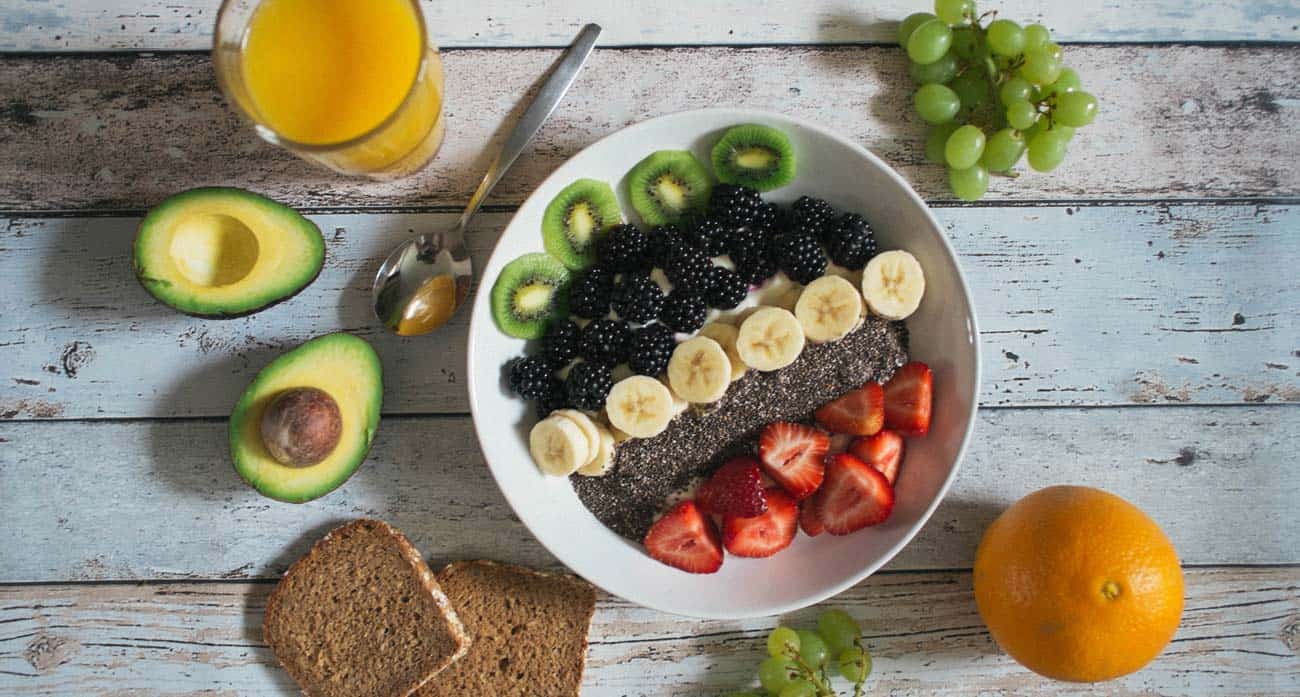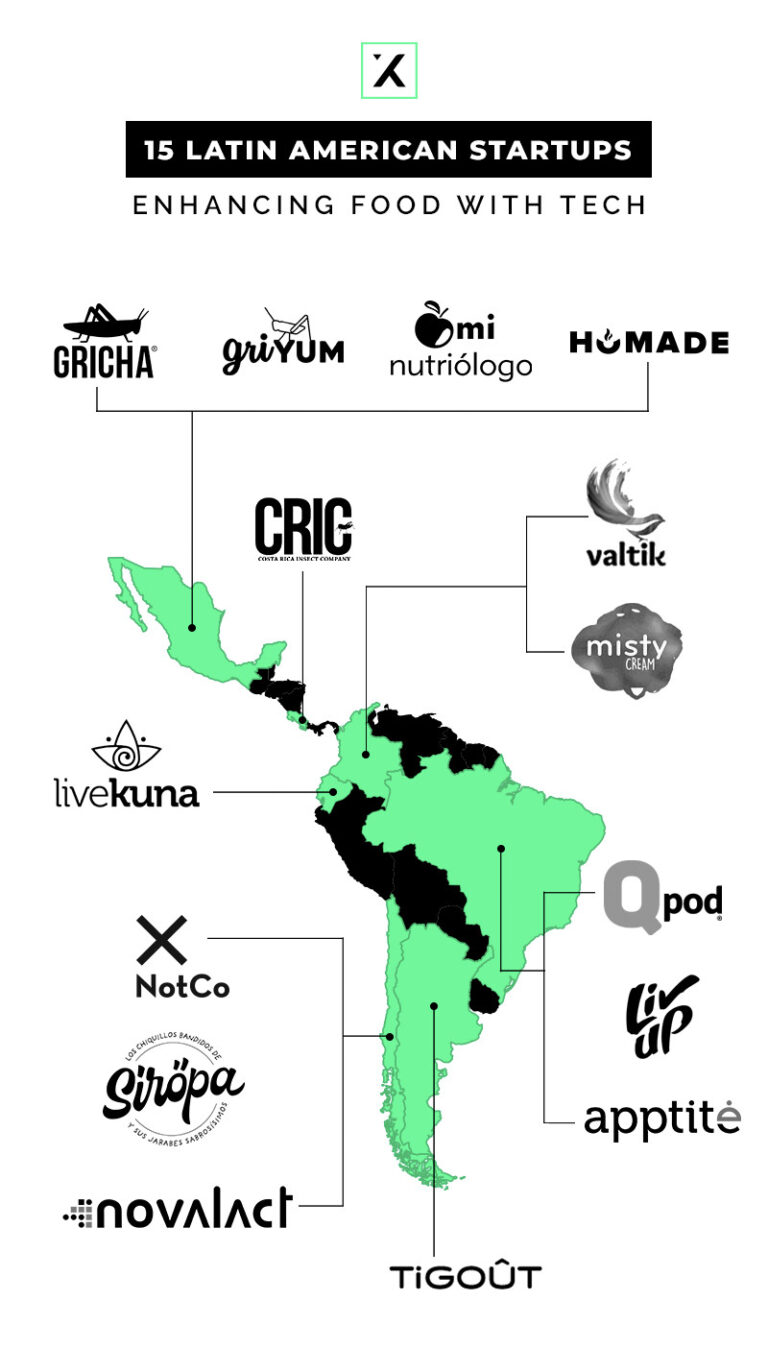
Por Jacob Atkins
July 10, 2019
Contxto – Latin America and great food go part and parcel. Spanning so much space, fresh produce and differing tastes make it one of the most diverse culinary regions in the world.
From arepas in Venezuela, pupusas in El Salvador, fresh ceviche in Peru, to chorrillana in Chile, there are good eats no matter where you go. While foodies and Instagram influencers already know this, so do Latin American startups. Here are some of the leading companies distributing goods across the region.

These are no ordinary cookies and snacks. Instead of using traditional means with animal fats or sugar, Gricha creates products rich in insect proteins. Part of its solution involves remedying food insecurity and poor eating habits.
Thanks to its convenient Apple app, Homade’s platform gives users the opportunity to buy or even sell healthy homemade food. Becoming a chef on Homade only requires a simple application and kitchen description.
This Brazilian food brand assembles eclectic meals and snack kits that are tasteful, natural, and convenient. Besides using natural ingredients and partnering with local producers to ensure the freshest quality, Liv Up preps and delivers pre-made food to boil or microwave at home, covering many Brazilian metropolitans.
Novalact is a biotech startup developing novel probiotics. The end result is a product capable of reducing and eliminating symptoms of lactose intolerance. The startup works on creating simple, streamlined probiotics to provide long-lasting protection against this issue.
This vertically-integrated superfood company working directly with Ecuadorian farmers to create healthy food is certified organic, vegan, dairy-free, gluten-free and GMO-free. Its products are available on Amazon and supermarket chains in Ecuador, Chile, Dominican Republic, Mexico, Panama, Trinidad and Tobago, the United States, as well as Canada.
Qpod produces snacks made from functional and natural ingredients. Making its own recipes, Qpod aims to provide healthy, nutritious, practical, and tasty treats. Lyophilization, also known as freeze-drying, is the process this company uses to preserve some of its food. It just so happens to be the same method to prepare astronaut food.
Apptite is an app for people in São Paulo to enjoy homestyle meals made with local flare. Even better, they are delivered right to their door. The startup provides a variety of products ranging from chicken stock to truffle lasagna. Rather than working with fast-food chains, this company connects with smaller businesses.
Valtik Foods develops fast-absorbing hydration mix under the trademark TITANIUM for quick hydration. The product helps both amateur and endurance athletes avoid stomach distress. In 2017, leAD Sports Accelerator selected this Colombian startup to participate.
Insects are a highly-neglected food source, at least according to this B2B producer of insect powder from Costa Rica. As food scarcity and climate change worsen due to various factors such as cattle raising, getting proteins from crickets would work as both environmental and nutritional solutions.
NotCo is a Chilean Food Tech company using artificial intelligence (the NotChef, Giuseppe) to create delicious, sustainable and accessible plant-based dairy substitutes. Not only has the company already developed vegan recipes for greek yogurt, milk, cheese and mayo, but they taste like the real thing.
Siröpa creates preserve-free fruit syrups bottled like concentrate. The sugar-free beverage comes in seven liter bottles, almost two gallons. This Chilean startup’s journey began in 2017 when the Healthy Food Regional Studies Center from Chile started producing its recipes. A year later, it raised funds from Chile’s government.
Raising its own crickets, Griyum is a food startup producing protein-heavy insect flour. Due to its production cycle, it can sell these products at some of the lowest costs on the market. With insect cultivation also comes 100 times less greenhouse gas emissions, 1,000 times less water, and 25 times less land required than traditional cattle livestock.
Homemade ice cream just got a whole lot more interesting with Misty Cream. The startup creates its own frozen dessert by mixing liquid nitrogen with natural fruit flavors, which certainly makes for a modern experience.
Mi Nutriólogo is a Mexican startup promoting nutrition, health, and ultimately, technology. Its mission is to leverage technology, innovation, as well as digital resources, to create profitable products and services. The goal is to combat obesity, improve eating habits, in addition to promoting healthy lifestyles among Hispanics.

Por Ayax Bellido
October 4, 2023
![The Complete List Of Latin American Unicorns [2022]](https://contxto.com/wp-content/uploads/2019/04/adorable-animal-canine-1564506-300x193.jpg)
Por Contxto
February 7, 2022

Por Sandra Pérez
January 11, 2022

Por Alejandro González Ormerod
October 13, 2020